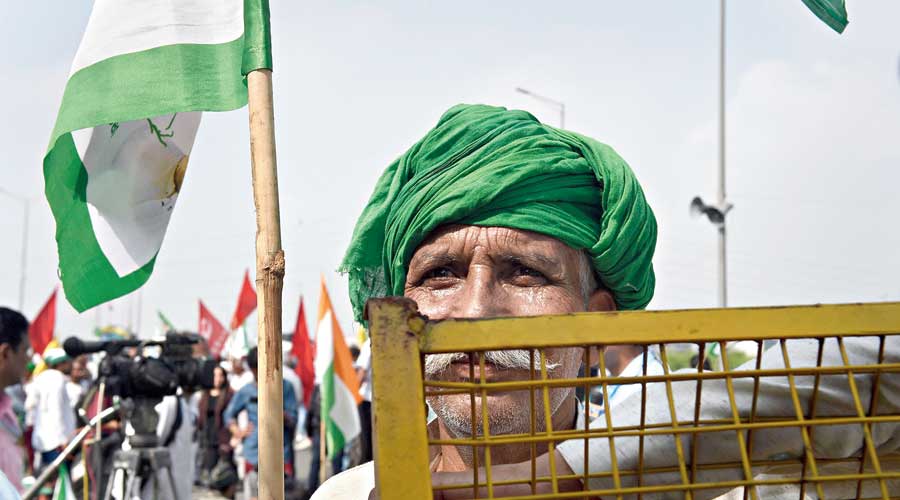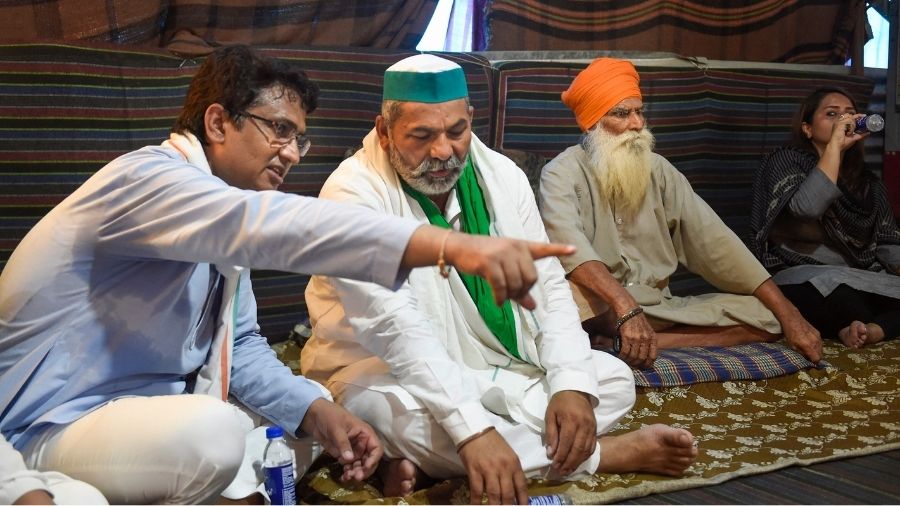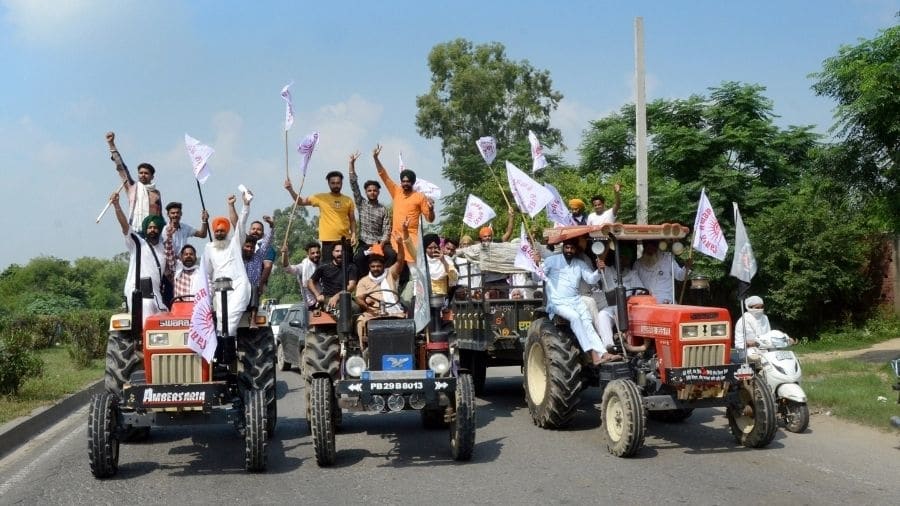Two telling responses marked the Bharat Bandh called on Monday by the Samyukta Kisan Morcha (SKM), which has been spearheading the farmers’ protests for the past 10 months against three farm laws.
One, Ashutosh of Swaraj India, a constituent of the SKM, said in a recorded statement: “We apologise to all those who were inconvenienced by our blockade. But people should realise that we were forced to give this call by the central government which has refused to listen to us and talk to us sincerely to resolve the stalemate.”
This is not the first time the SKM or a constituent has apologised for inconveniencing common people but it is a habit that stands out.
Two, the Right-wing ecosystem sought to discredit the bandh by using an undated picture of a bustling thoroughfare.

Members of Bharatiya Kisan Union Ugrahan serve langar to passengers of the Delhi-Shri Ganganagar Intercity Express after stopping it during the bandh at Daun Kalan village near Patiala on Monday PTI
Messages were posted on social media, stating that “my city is fully open” and naming the city. The same image was used for Pune, Delhi, Surat and Patna. Fact-checking website AltNews performed a reverse image search and found that the image used in all these social media posts was a five-year-old photograph from Patna.
As always with bandh mobilisations, the response was mixed, the call being more effective in some states than others. But there were reports of some form of mobilisation from practically every state, including the BJP’s showpiece province of Gujarat.
North Western Railway officials said train services in Punjab and Haryana were affected during the bandh from 6am to 4pm as farmers picketed the tracks. Several highways leading into the national capital witnessed traffic snarls because of blockades.

Security personnel stand guard next to police barricades at the Ghazipur border in New Delhi on Monday during the farmers’ Bharat Bandh. PTI
The response to the bandh call in Punjab and Haryana was near-complete, with traders downing shutters in solidarity with the farmers, who used their tractors to block roads and highways. Only emergency vehicles were allowed to move.
An army convoy was stopped for around half an hour in Jalandhar but was subsequently allowed to move by the protesting farmers.
Punjab chief minister Charanjit Singh Channi urged the Centre to repeal the three farm laws. “#I Stand With Farmers & appeal the Union Govt. to repeal the three anti-farmer laws. Our farmers have been struggling for their rights since more than a year & it is high time that their voice is heard. I request the farmers to raise their voice in a peaceful manner,” Channi tweeted.
While few states could match Punjab, Haryana and Kerala, the bandh was observed on a smaller scale across the country. Karnataka, Bihar, Maharashtra, Kerala, Andhra Pradesh, Telangana and Odisha saw farmers turn out in considerable numbers to protest the farm laws, some by picketing the roads and rail tracks and others by organising protest marches. Protests were also organised in Uttar Pradesh and Uttarakhand.
According to the SKM, several non-farmer associations extended support to the farmers and joined the bandh.
A few organisations used the platform to air their grievances too. The farmers’ movement has over the past 10 months sought to build broad coalitions across the spectrum.
“The overall mood across the country was anger and frustration with BJP-RSS policies that the Modi government is enforcing, curbing basic freedoms and democracy, and putting most citizens on the path of survival struggle,” the SKM said.
Most Opposition parties had extended unconditional support to the bandh call although they stayed in the background, respecting the will of the farmers to decide the course of the movement. Through the past 10 months, the farmers –- even while campaigning against the BJP in elections -– have been particular about ensuring that no political party uses their stage.












